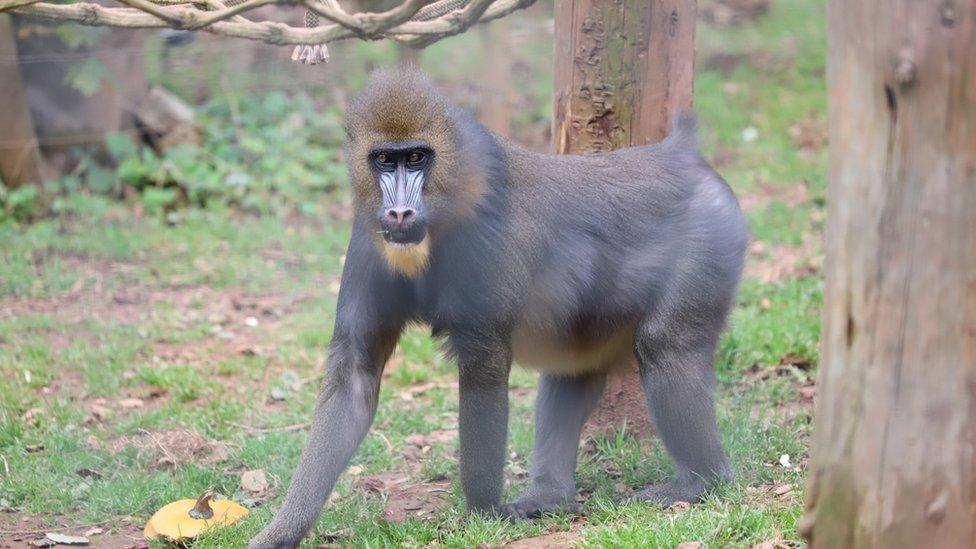Endangered animals: Zoo teams up with 'biobank' to save animals from extinction
- Published
- comments

Paignton Zoo is home to many endangered animals like this mandrill
With over 40,000 animal species currently at risk of extinction, could preserving animal cells be the solution?
Paignton Zoo in Devon, is the latest organisation to team up with a charity, called Nature's Safe, which cryogenically freezes genetic samples of animals.
So far, the charity has made a 'biobank' of frozen samples from around 80 different species at its laboratories.
Nature's Safe is one of Europe's first biobanks dedicated to preserving endangered animals in this way.
"It's a really exciting opportunity and it really represents the diversity of roles that modern zoos, good zoos, can do," said Steve Nash from Wild Planet Trust, which runs the zoo.
Cryo-preservation is a special procedure which uses temperatures below в€’130 В°C to preserve cells and tissues.
In medicine it is already used for things like human blood cells.
Co-founder of Nature's Safe, Tullis Matson, told Sky News: "We can bring these samples back to life in 10, 20, 30, 1,000 years' time and hopefully stop the extinction process and slow down the diversity loss in the planet when these species are maybe on the brink of extinction."
A sample is placed in a cryogenic tank
The zoo provides samples from animals that have died or been neutered.
As well as the Paignton zoo, the charity has already partnered with Chester Zoo, the European Association of Zoos and Aquaria, and researchers at Oxford University.
With so many species facing extinction, the charity says it is a race against time to preserve the genetic data: "We're at the cliff edge of losing so many species on a daily basis, we have nowhere else to go, so we've got to do it here and now.
"Whatever it takes on a technology side, we have to use those tools to be able to stop them from disappearing."
The technology to cryo-freeze animal tissues has also been used for a number of years at San Diego Zoo in the US, which says it has the largest sample collection in the world.
The endangered black rhino is one of the animals which has got frozen genetic samples in the lab
Dozens of species including the critically endangered black rhino have already had samples preserved.
The species stored so far also include the tamarin monkey, mouse deer, Colombian spider monkey and the panther chameleon.
The United Nations has estimated that one million animal and plant species will vanish in the next few decades.
- Published21 December 2021
- Published4 February 2022
- Published11 February 2019
